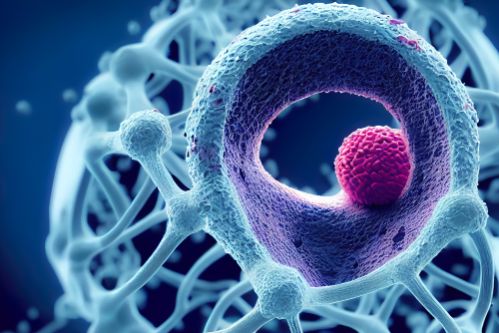Colorectal adenocarcinoma is cancer that starts in cells that line the large intestine (colon) or rectum. The colon absorbs water and nutrients from food as it moves through the digestive system, then passes waste—called stool—to the anus. The rectum is a five-foot section of the body that connects the colon to the anus.
It is not clear what causes the cells in the lining of the colon or rectum to change and grow out of control, forming a tumor. The tumor may be cancerous or non-cancerous. A cancerous tumor can grow into tissue around it, destroy that tissue, and spread to other parts of the body. Cancerous tumors can be caused by changes, or mutations, in the DNA that makes up your genes. Changes in your DNA can be passed from parents to you, or acquired during your lifetime. Inherited mutations cause only a small number of cases of colorectal cancer, but acquired gene mutations are more common and likely to lead to colorectal adenocarcinoma.
Doctors diagnose colorectal adenocarcinoma by ordering blood tests, stool samples, and a CT or magnetic resonance imaging scan of the colon. A CT or MRI scan produces images of the tissue and shows how far the cancer has spread in the colon and to other parts of the body.

In addition to the screening methods described above, doctors also use a digital rectal exam, which involves inserting a lubricated finger into the rectum to feel for abnormalities. If you have a history of polyps or other signs or symptoms of colorectal cancer, your doctor may recommend a biopsy. A biopsy is the removal of a tiny piece of tissue for laboratory testing. If the biopsy results show that you have colorectal adenocarcinoma, your doctor may recommend surgery or other treatment to cure it, prevent it from spreading, and ease symptoms.
Surgery to remove colorectal adenocarcinoma can involve removing all or part of the colon and may include removing nearby lymph nodes. For advanced cancer, doctors sometimes recommend chemotherapy or radiation therapy to decrease the chance of the cancer coming back after surgery.
It is important to know that even after treatment, cancer can come back, so it is important to visit your doctor for regular screening and follow their recommendations for diet, exercise, and lifestyle. Doctors can often find colorectal adenocarcinoma when it is in its early stages, when it is easier to treat. This is why it is important to get screened on a regular basis, especially for people with a family history of colorectal cancer or other risk factors.








